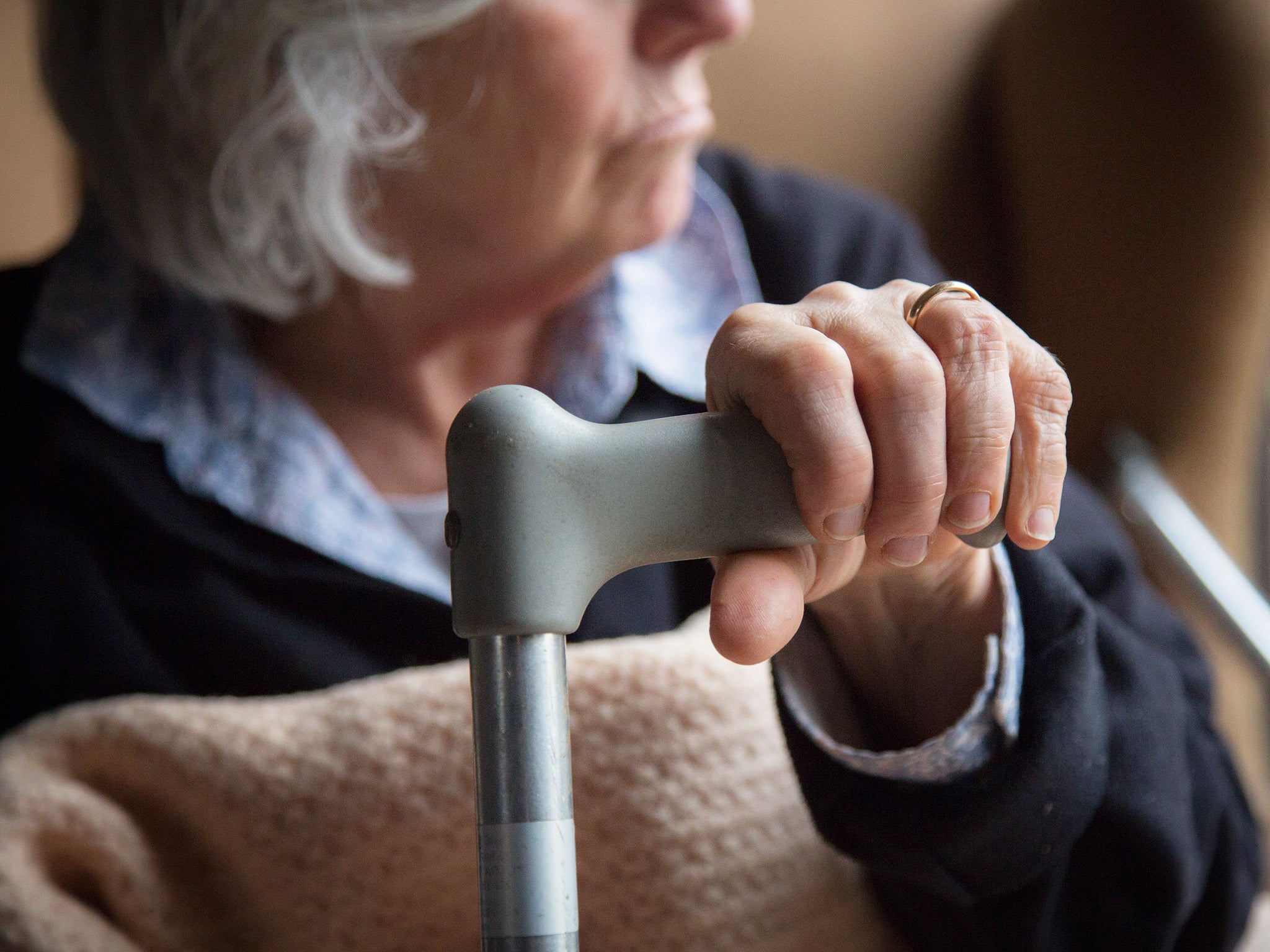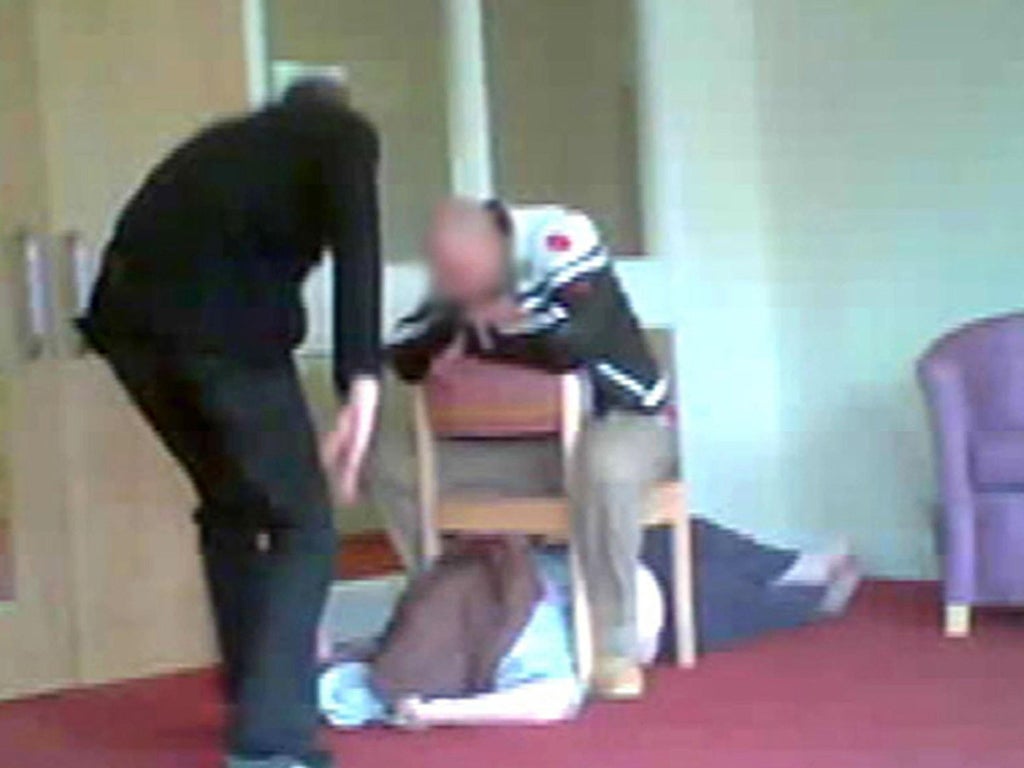Care home surveillance technology 'could let relatives check residents on their smartphones'
Care Project system will offer cameras in bedrooms and communal areas

Your support helps us to tell the story
From reproductive rights to climate change to Big Tech, The Independent is on the ground when the story is developing. Whether it's investigating the financials of Elon Musk's pro-Trump PAC or producing our latest documentary, 'The A Word', which shines a light on the American women fighting for reproductive rights, we know how important it is to parse out the facts from the messaging.
At such a critical moment in US history, we need reporters on the ground. Your donation allows us to keep sending journalists to speak to both sides of the story.
The Independent is trusted by Americans across the entire political spectrum. And unlike many other quality news outlets, we choose not to lock Americans out of our reporting and analysis with paywalls. We believe quality journalism should be available to everyone, paid for by those who can afford it.
Your support makes all the difference.New care home surveillance technology launched this week could enable relatives to check up on residents via their smartphones, while feeding footage to expert monitors on the lookout for cases of abuse or malpractice.
Care homes around the country will be invited to purchase the Care Protect system, launched by the former Priory Group chief executive Philip Scott.
The company is offering to install cameras in bedrooms, communal areas and pharmacies of care homes. Motion and sound sensitive cameras in residents’ own rooms will feed footage of any unusual activity to independent expert monitors who will be able to alert the home to any problems, or even bring issues of poor care or abuse to the attention of regulators or the police.
Relatives will also have access to footage from bedrooms, accessible via smartphone or tablet computers. The company said that the cameras would only be switched on in the rooms of consenting residents and families.
Monitors working on-call will be able to receive notice of potential incidents even out-of-hours, via an alert on their own phone or device.
Hidden camera footage has proved instrumental in exposing care failings and abuse in care homes. The BBC’s Panorama programme secretly filmed incidents at Winterbourne View in 2011 and the Old Deanery care home in 2014.

The cases have led to an increased interest among relatives and care homes for surveillance technology, but the subject has proved highly controversial.
Inspectors at the Care Quality Commission (CQC) issued guidance earlier this year for people considering hidden cameras and for care homes themselves considering surveillance equipment.
Mr Scott said that he wanted to see the Care Protect system, which has been piloted in a 76-bed care home in Birmingham, become a “benchmark requirement” for all care homes. He added that the technology could also be used in hospitals, children’s homes and nurseries.
“Had we had a system like this then Winterbourne would never have happened, [the] Staffordshire [hospital care scandal] would never have happened,” he said.
“The monitors themselves meet all of the required guidelines. They are experienced healthcare professionals who have spent many years in health and social care environments. They know how to recognise things like abuse.”
Ann Willey, manager of the Bramley Court care home in Yardley, Birmingham, which trialled the system said that despite initial apprehension among residents and staff, the surveillance technology had led to improved standards, adding that footage had been used in the training of staff.
She added that relatives – some of whom had to grant consent for family members who were unable to do so – were “extremely positive” about the system.
Care Protect said that all footage would be held in an encrypted storage portal and that the system abided by data protection laws and the CQC’s guidelines. Mr Scott said that for a 70-bed home, the cost would be £10 per resident, per week.
The CQC’s Chief Inspector of Adult Social Care, Andrea Sutcliffe, said: “We all want people using health and social care services to receive safe, effective, high quality and compassionate care. It is what everyone has a right to expect.
“Sadly, we know that does not always happen and the anxiety and distress this causes people, either for themselves or a loved one, is simply awful.
“For some, cameras or other forms of surveillance, whether openly used by services or hidden by families, are the answer. Others feel this is an invasion of people’s privacy and dignity. Many don't know what to do if they are concerned.
“Our information for the public explains what people can do if they are worried about someone’s care and the things they need to think about if they are considering using any form of recording equipment.”
UNISON General Secretary Dave Prentis said: “Cameras might go some way towards reassuring people that their relatives are being well-looked after but CCTV will do nothing to address any of the fundamental problems that can lead to poor and abusive care.
“Many care homes have a high turnover of staff, do not provide enough training, and low wages and unsocial hours make it difficult for many to recruit enough staff to provide proper care to the residents. Without substantial investment in the care sector, these problems will simply worsen as the UK’s population ages.”
Join our commenting forum
Join thought-provoking conversations, follow other Independent readers and see their replies
Comments